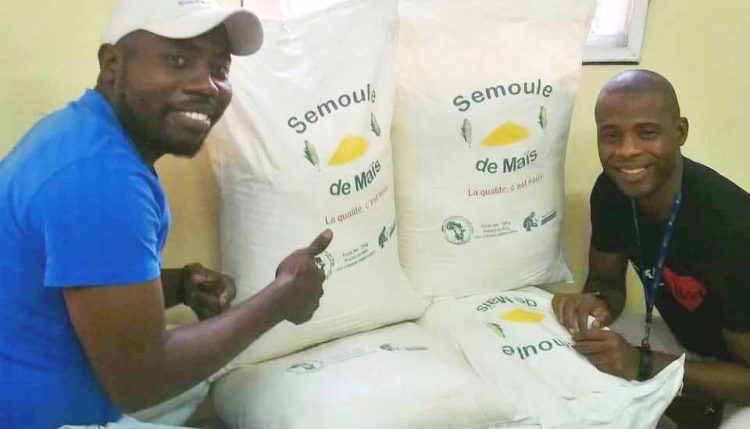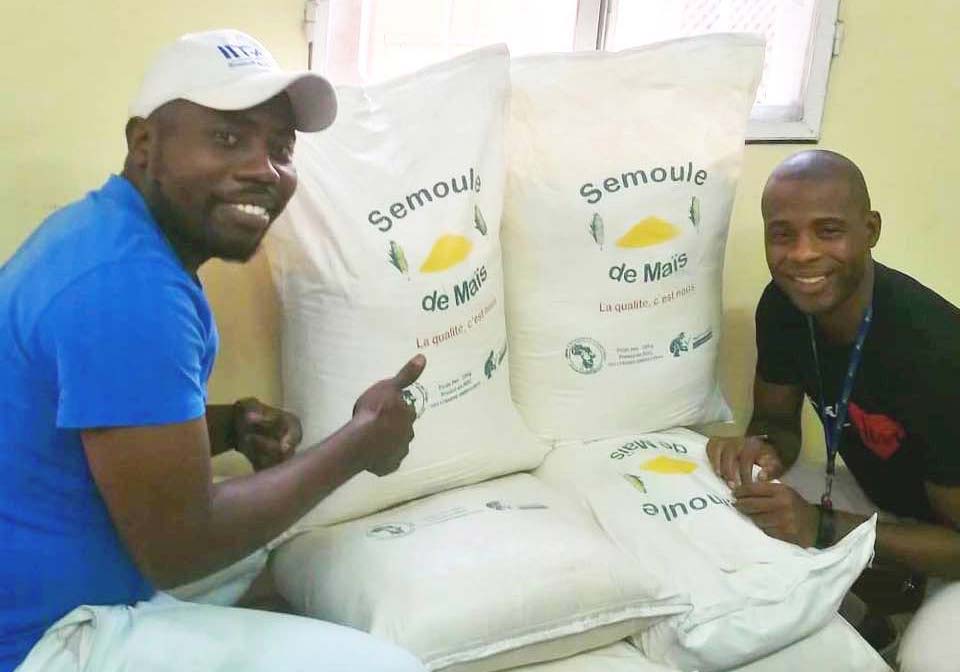
Youth cooperative sets pace in processing and marketing cornmeal in DRC
In the Democratic Republic of Congo, agribusiness is currently one of the drivers of job creation for young people and for the fight against food insecurity. As a result, young people and members of the Kinshasa Agripreneurs Cooperative (COPAKIN) [in French: Coopérative Agripreneurs Kinshasa] have embarked on income- generating activities, including the processing and marketing of yellow cornmeal.
Through these activities, these agripreneurs have found agribusiness to be a favorable way of creating wealth, strengthening food security, and contributing to reduced unemployment among young graduates.
The production of cornmeal in 25-kg bags is now a mainstay on the market due to the ready demand as previous users come back for repeat business. The transformation of yellow corn into high quality semolina and its marketing at affordable prices have contributed to its consumption on a large scale. Extra value is added with the provision of a home delivery option.
The agripreneurs are constantly acquiring new skills to both improve maize processing and increase their income. The new technologies and skills also increase shelf life and product quality in warehouses.
Maize plays a key role in addressing food security as it is a staple food among the vast majority of Congolese households. With cornmeal, one can make pancakes, gratins, creams flavored with aromatic herbs or vanilla as well as cakes, cookies, and rolls, making it an increasingly important raw material for pastry production.
Being naturally gluten free, corn is appreciated for its nutritional qualities. Cornmeal is rich in vitamins A and B as well as other nutrients and, as a result, it can also be given to young children.
Following the success of cornmeal processing, these agripreneurs are now exploring other value chains such as the processing and marketing of cassava as fufu, white corn semolina, and the manufacture of other cassava and soy products such as bread, biscuits, milk, and waffles. They also plan to acquire more corn and cassava fields for production.

